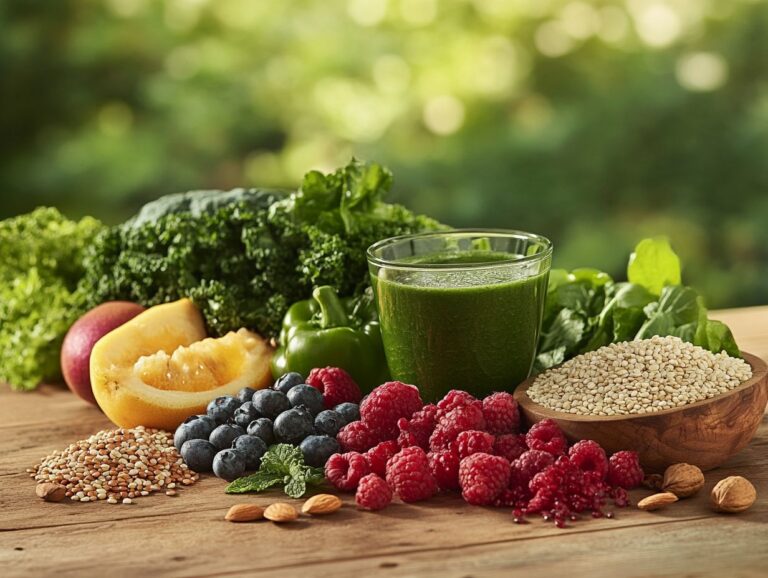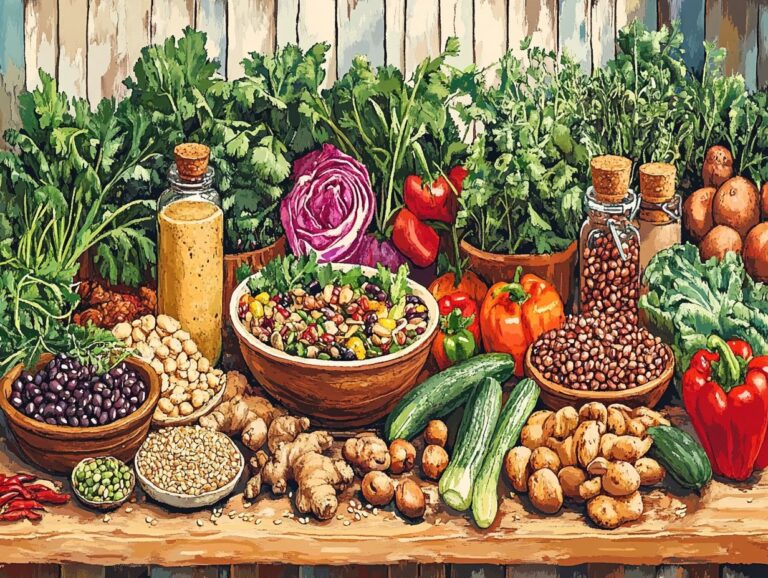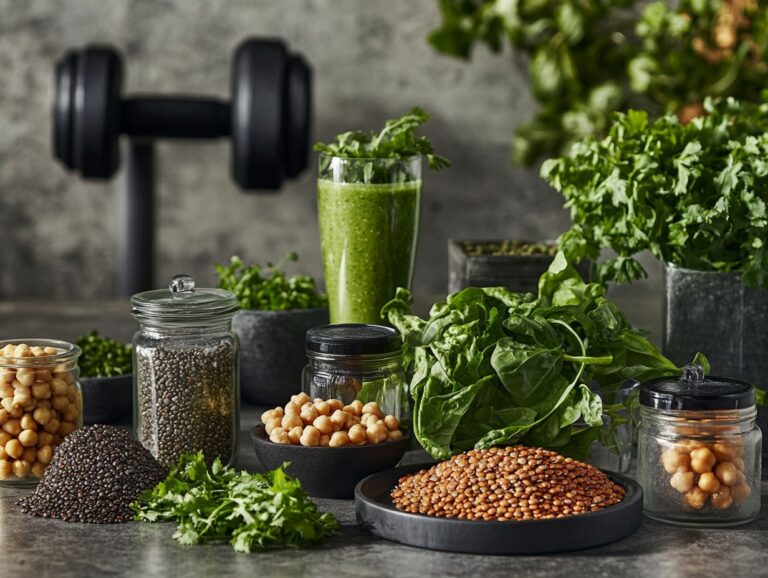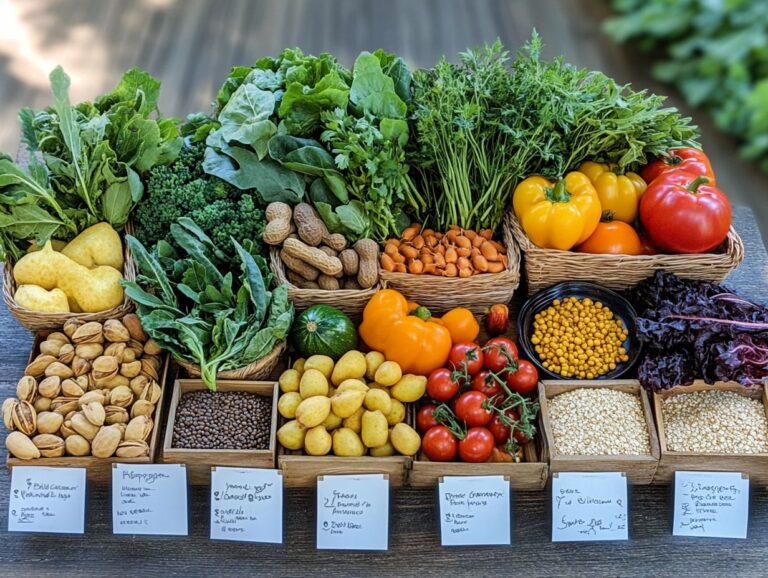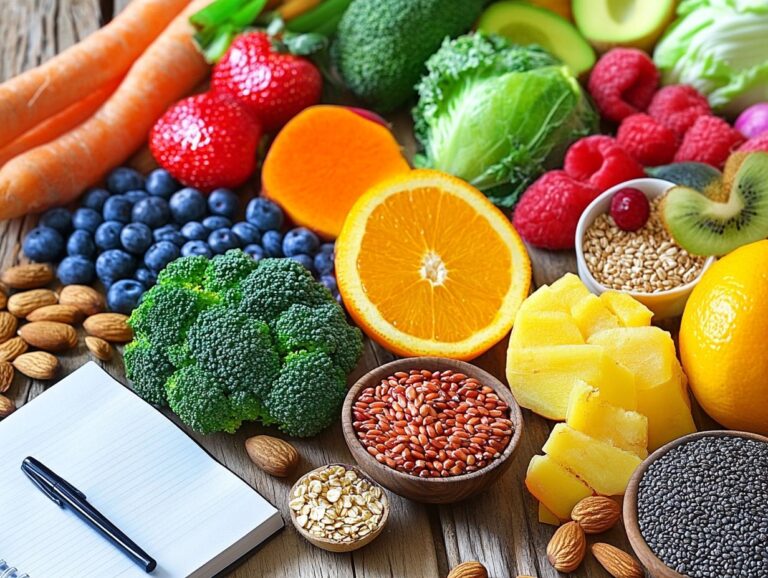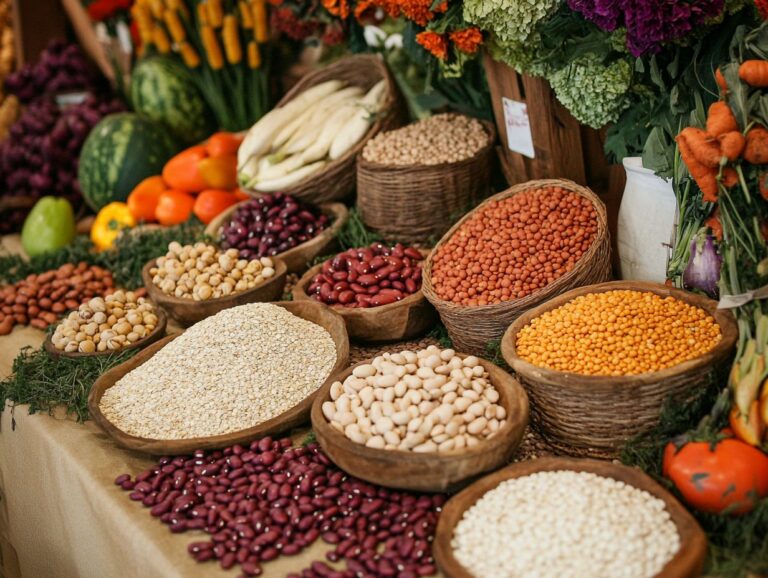The 800-calorie vegan diet combines the principles of a plant-based lifestyle with a calorie-restricted eating plan. While this vegan diet is thought to be effective for weight loss, further research is needed to evaluate its effectiveness, health benefits, risks, and nutritional requirements. We will assess the pros and cons of the 800-calorie vegan diet and provide practical tips on meal planning, managing cravings, mindful snacking, and sharing real-life success stories. This information will help you determine if this sustainable diet is suitable for you.
Key Takeaways:
- An 800-calorie vegan diet restricts daily calorie intake to promote weight loss, while following a vegan lifestyle with nutrient-rich foods.
- This diet can be effective for weight loss, but may come with potential risks and side effects if not followed properly.
- It’s important to carefully plan meals and consider whole grains, protein sources, carbohydrates, and healthy fats while following this diet to meet nutritional needs and achieve nutritional adequacy.
What Is an 800-Calorie Vegan Diet?
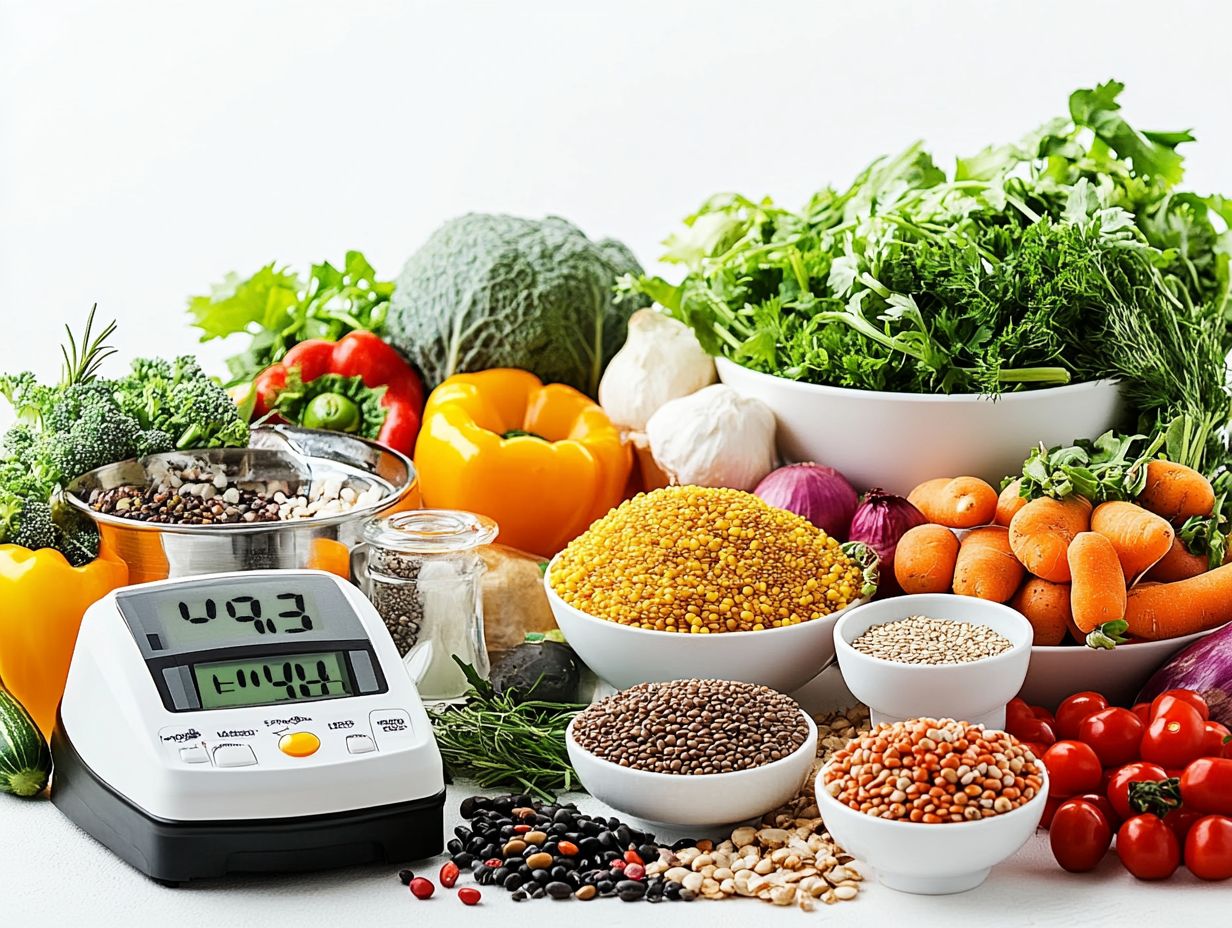
An 800-calorie vegan diet is a restrictive dietary plan that limits daily caloric intake to 800 calories while consisting of a variety of plant-based foods. This diet emphasizes the consumption of whole grains, fresh fruits, vegetables, legumes, and other nutrient-rich foods to maintain nutritional adequacy despite the reduced daily calorie intake.
By promoting healthy eating habits and positive habits, this diet aims to assist individuals in achieving their weight loss goals without compromising nutrition, utilizing the essential nutrients found across different food groups.
How Does an 800-Calorie Vegan Diet Work for Weight Loss?
The 800-calorie vegan diet promotes weight loss by creating a significant calorie deficit, which encourages the body to utilize stored fat for energy, leading to gradual weight reduction.
This diet primarily consists of nutrient-dense foods that help maintain metabolic health while reducing overall calorie intake and supporting nutritional adequacy. It also fosters portion control and mindful eating practices, making it easier for individuals to stick to their weight loss goals while still enjoying a diverse range of healthy vegan options.
What Are the Benefits of an 800-Calorie Vegan Diet?
An 800-calorie vegan diet offers several advantages, including effective weight loss, improved metabolic health, and a reduced risk of obesity-related illnesses, making it a viable option for individuals seeking to lose body weight sustainably.
This diet promotes the consumption of plant-based foods that are rich in essential nutrients, ensuring nutritional adequacy despite restricted caloric intake. It aligns with dietary guidelines that emphasize healthy eating patterns centered around whole foods, which can help prevent health issues such as diabetes, cardiovascular disease, and obesity.
Research indicates that following a lower-calorie vegan diet not only increases metabolic rates but also enhances insulin sensitivity. For example, a study published in the Journal of Nutrition found that participants on a plant-based diet experienced a 12% increase in metabolic rate compared to those on a standard diet.
Additionally, the Mental Health Foundation highlights that consuming foods high in fruits, vegetables, and whole grains supports mood and cognitive function, contributing to mental stability during the weight loss journey.
While calorie restriction can be beneficial, it is essential to maintain balance by incorporating a variety of foods to ensure that vital vitamins and minerals, which are essential nutrients, are not sacrificed.
What Are the Risks of an 800-Calorie Vegan Diet?
The 800-calorie vegan diet offers weight loss benefits, but it also presents risks that individuals should consider before implementation.
One significant risk is the potential for health issues arising from inadequate nutrient intake, particularly vitamins and minerals essential for overall health and maintaining a balanced diet. The restrictive nature of the 800-calorie diet may result in decreased protein consumption, which can lead to muscle mass loss, decreased physical activity, and a decline in metabolic rate over time.
Additionally, individuals may face psychological risks, such as heightened cravings and an increased likelihood of developing disordered eating habits, as extreme calorie restriction can contribute to an unhealthy relationship with food. Nutrient deficiencies, particularly in vitamin B12, iron, and omega-3 fatty acids, can result in fatigue, health markers disruption, and other health-related issues.
To mitigate the risks associated with the 800-calorie vegan diet, it is advisable to consult healthcare professionals and consider keeping a food diary before starting such a restrictive regimen. Regular monitoring of nutritional intake can help ensure that essential dietary requirements are being met.
What Are the Nutritional Requirements of an 800-Calorie Vegan Diet?
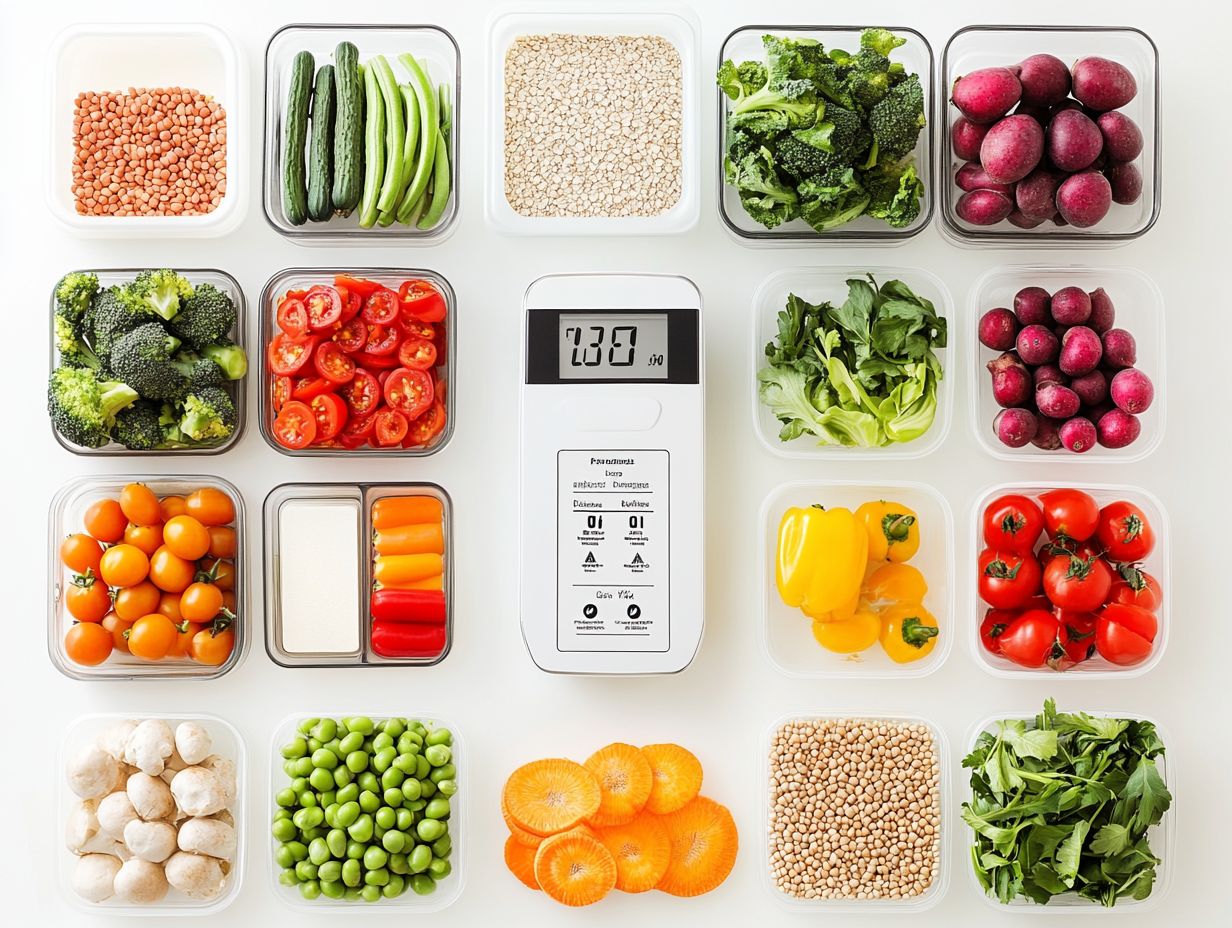
An 800-calorie vegan diet necessitates the consumption of diverse, nutrient-rich, and fiber-rich foods to meet essential nutrient requirements despite the low daily calorie intake.
Individuals should prioritize high-quality protein from sources such as legumes, nuts, and whole grains to maintain muscle mass and overall health.
Additionally, adequate fiber intake from fresh fruits and vegetables supports digestive health and promotes a feeling of fullness, which can aid in adhering to the dietary regimen.
How Much Protein Do You Need on an 800-Calorie Vegan Diet?
Protein intake is a crucial aspect of an 800-calorie vegan diet, as it helps maintain muscle mass and supports essential metabolic functions.
The recommended protein intake for this diet typically ranges from 15-20% of total energy intake, which equates to about 30-40 grams of protein per day.
Individuals can meet their protein requirements through sources such as legumes, tofu, tempeh, and other plant-based proteins. Including a variety of these foods is important for two reasons:
- It provides the necessary amino acids without the ethical and health-related concerns associated with a non-vegan diet.
- It aids in weight loss by promoting a sense of fullness, which can reduce overall caloric intake.
Nutritious foods that are naturally high in protein include beans, lentils, quinoa, and seitan, which can help individuals achieve their daily protein goals.
To effectively incorporate adequate protein into a daily meal plan, one might consider adding beans to salads, blending protein powder into smoothies, or snacking on edamame.
A diverse selection of these foods is essential to fully enjoy the benefits of an 800-calorie vegan diet.
What Are Some Sources of Protein on an 800-Calorie Vegan Diet?
On an 800-calorie vegan diet, protein sources include legumes, whole grains, nuts, and seeds. Incorporating foods such as lentils, chickpeas, quinoa, and almonds not only helps meet protein requirements but also enhances overall nutrient density.
Lentils are among the most common plant-based protein sources, providing approximately 18 grams of protein per cooked cup. Quinoa is another well-known source of plant protein; it is a complete protein, containing all nine essential amino acids, and offers around 8 grams of protein per cup.
Additionally, nuts and seeds, such as chia and hemp seeds, are excellent sources of protein, along with healthy fats and fiber. The ingredients mentioned can be utilized in various ways to create meals.
For example, lentils can be incorporated into soups and stews, while nut butter and chia seeds can enhance smoothies.
By combining these foods throughout the day, individuals can ensure their protein needs are met while also achieving other dietary goals, including energy requirements.
What Are Some Sources of Carbohydrates on an 800-Calorie Vegan Diet?
In an 800-calorie vegan diet, carbohydrates primarily come from whole grains, fresh fruits, and vegetables, which are essential for providing energy and supporting overall health.
Foods such as brown rice, oats, and sweet potatoes not only supply necessary carbohydrates but also offer dietary fiber, aiding in digestion and promoting feelings of fullness. Choosing high-quality carbohydrates is vital, as they influence energy levels, helping to maintain stamina throughout the day while also playing a significant role in weight management.
It is crucial to balance carbohydrate intake with proteins and healthy fats to create a well-rounded diet. Incorporating meals such as:
- Quinoa salad with black beans
- Mixed vegetable stir-fry with brown rice
- Fruit smoothies made with spinach, bananas, and almond milk
can effectively fit within the 800-calorie limit. These meals not only provide essential nutrients but also sustain energy, help keep hunger at bay, and facilitate portion control and mindful eating, making them ideal for anyone mindful of their dietary choices.
What Are Some Sources of Healthy Fats on an 800-Calorie Vegan Diet?
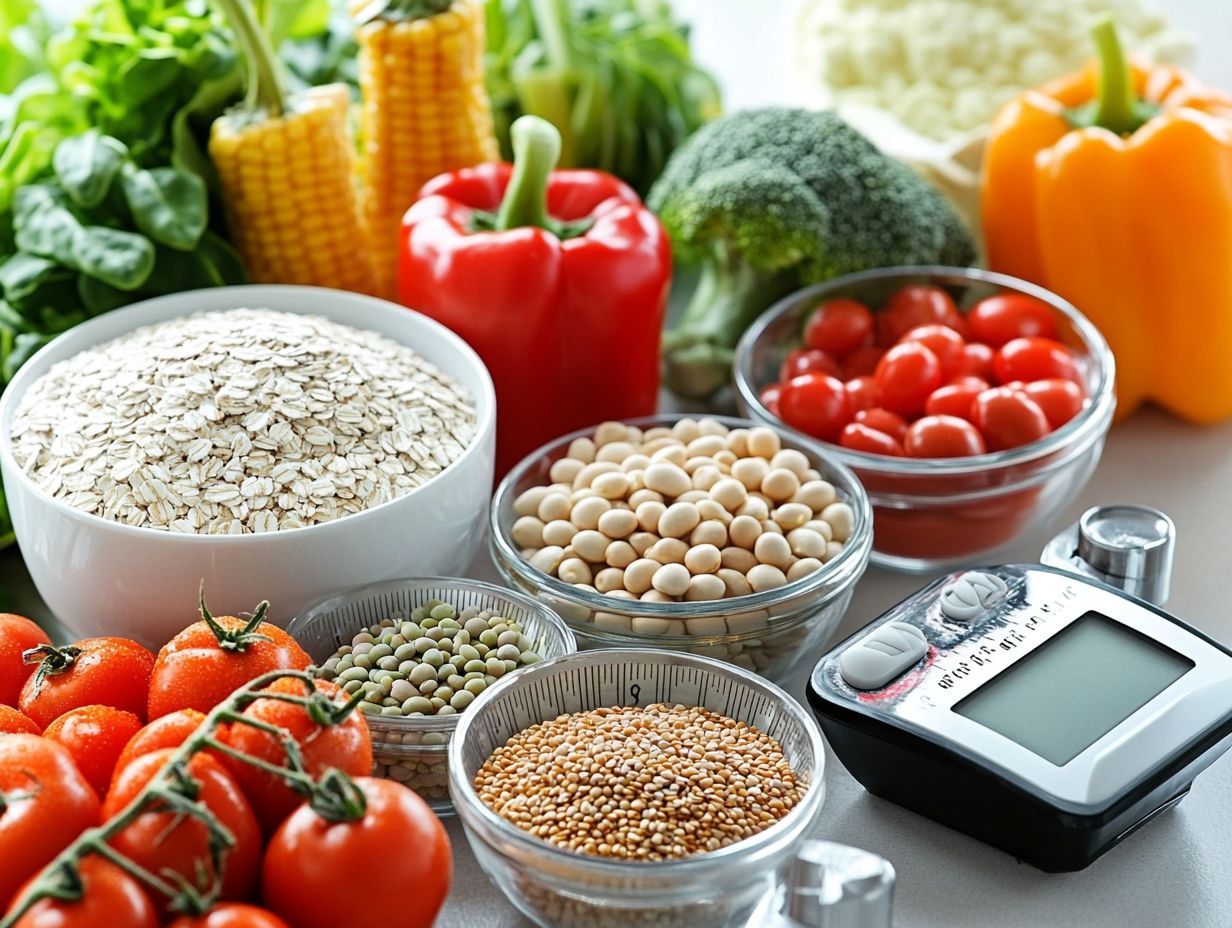
Healthy fats are a crucial component of an 800-calorie vegan diet, as they help individuals feel full and assist in the absorption of fat-soluble vitamins.
Incorporating plant-based sources of healthy fats, such as avocados, nuts, and seeds, ensures that a person receives essential fatty acids, natural fats, and micronutrients while maintaining a low calorie intake.
These healthy fats play an important role in an 800-calorie meal plan by promoting heart health and reducing inflammation, thanks to their high content of omega-3 and omega-6 fatty acids.
For instance, walnuts and flaxseeds are beneficial additions due to their heart-healthy properties.
Individuals can enhance their meals with healthy fats without significantly increasing daily calories by adding chia seeds to smoothies or salads or blending avocado into soups for added creaminess during meal prep.
It is also important to be mindful of serving sizes; for example, choosing a small handful of nuts or a tablespoon of nut butter can help ensure that the total calorie intake aligns with a person’s dietary needs while still allowing them to enjoy the benefits of healthy fats and natural fats, which are integral to a balanced diet.
How to Follow an 800-Calorie Vegan Diet Safely?
An 800-calorie vegan diet can be safely followed with careful meal planning and strict adherence to portion control. It is important to ensure that the diet remains nutritionally adequate while staying within the appropriate calorie limits, focusing on nutrient-rich foods to maintain essential nutrients.
Individuals on this diet should focus on consuming a variety of nutrient-dense foods, closely monitor their calorie intake, and practice mindful eating to maintain a balanced approach to weight loss, ensuring that all food groups are adequately represented.
Keeping a food diary can also be beneficial for tracking progress and ensuring that all essential nutrients, including vitamins and minerals, are included in their diet, and that their nutritional needs are met.
How to Plan Meals on an 800-Calorie Vegan Diet?
Creating a meal plan for an 800-calorie vegan diet involves crafting nutritious meals that fulfill caloric and nutrient requirements while focusing on whole, plant-based foods, and maintaining a calorie deficit for weight loss.
Individuals can benefit from preparing their meals at home, as this allows for greater control over ingredients and portion sizes, which is crucial for adhering to the calorie limit and avoiding processed foods that may hinder weight management.
By thoughtfully selecting a variety of food groups, they can ensure their plates are both visually appealing and nutritionally balanced. A well-balanced plate typically includes colorful vegetables, whole grains, healthy fats, and ample protein sources, such as lentils or quinoa, to support their vegan lifestyle.
For instance, a simple yet satisfying meal could consist of a stir-fried mix of bell peppers and broccoli served over brown rice, accompanied by a side of black bean salad, which aligns with dietary guidelines and promotes healthy eating.
Snacks like sliced cucumbers with hummus or air-popped popcorn seasoned with nutritional yeast can easily fit within the daily caloric framework while providing energy and essential vitamins, supporting mindful snacking habits.
Cooking at home not only saves money but also allows individuals the opportunity to experiment with new recipes, ensuring that their meals remain both healthy and delicious.
What Are Some Tips for Sticking to an 800-Calorie Vegan Diet?
Maintaining an 800-calorie vegan diet can be challenging, but adopting positive habits and making careful snacking choices can help individuals adhere to the regimen, contributing to effective obesity treatment.
Establishing a schedule, engaging in meal prep, and incorporating filling yet low-calorie snacks can assist in controlling hunger and cravings, making it easier to stick to the diet.
Having a variety of nutritious snacks readily available reduces the temptation to opt for unhealthy choices when hunger strikes. Staying hydrated is also crucial, as people often confuse thirst with hunger.
Additionally, individuals may benefit from joining online or local support communities that share similar dietary goals, providing motivation and accountability.
When faced with common challenges such as social events or cravings for specific foods, having a plan to navigate these situations without deviating from the diet is essential.
Ultimately, achieving success involves finding a balance and making sustainable lifestyle adjustments that promote long-term health, leveraging the health benefits of a plant-based diet.
What Are Some Potential Side Effects of an 800-Calorie Vegan Diet?
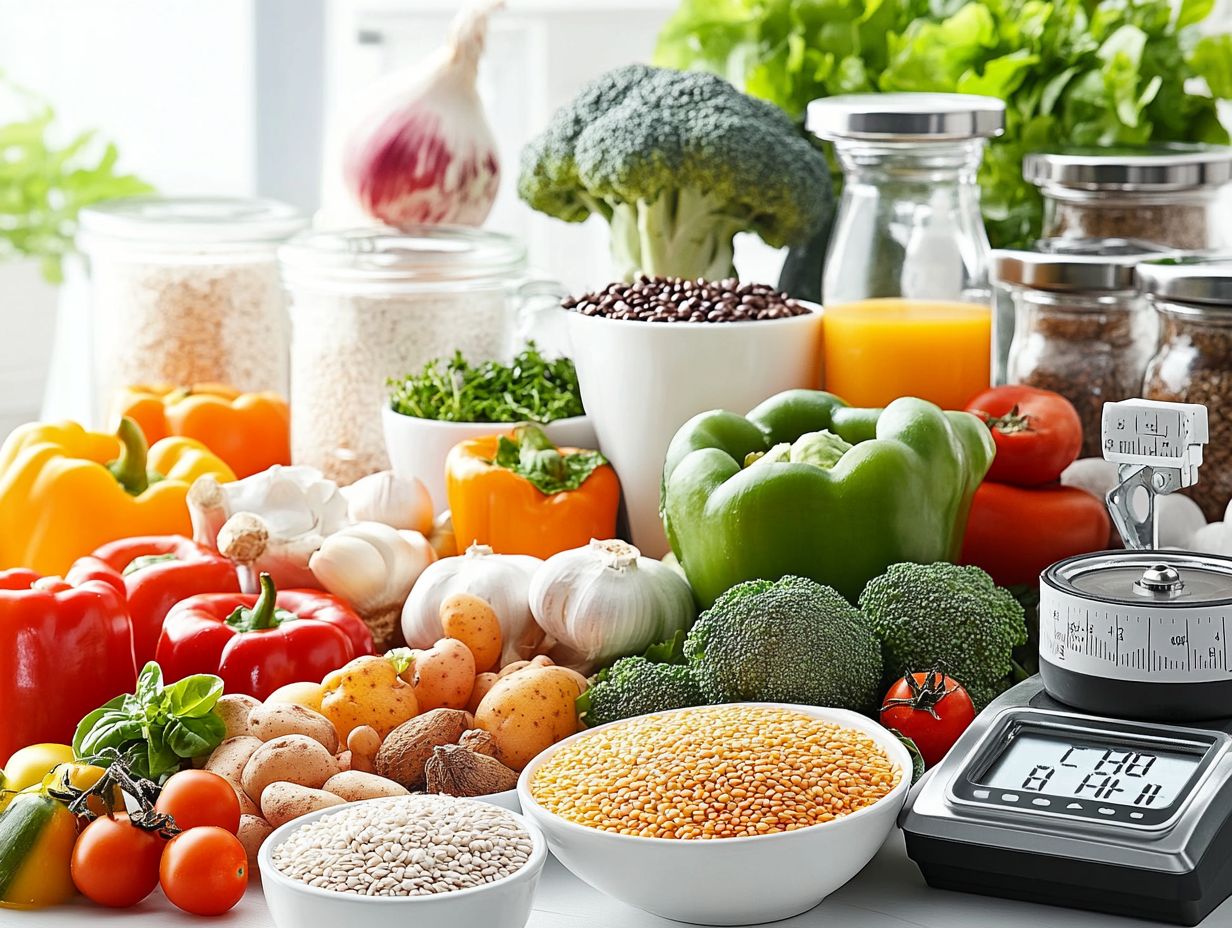
Potential side effects of an 800-calorie vegan diet may include health issues resulting from inadequate nutritional intake, particularly if individuals do not plan their diets carefully to ensure nutritional adequacy and protein intake.
Common side effects can include fatigue, dizziness, and digestive disturbances, which may arise from nutritional deficiencies if sufficient amounts of essential vitamins and minerals are not consumed.
How Can You Manage Hunger and Cravings on an 800-Calorie Vegan Diet?
Hunger and cravings on an 800-calorie vegan diet can be effectively managed through careful meal planning that incorporates high-fiber foods, which promote a sense of fullness and satisfaction.
By ensuring a diverse intake of legumes, whole grains, and fresh fruits, individuals can feel satisfied more quickly and reduce the risk of overeating or succumbing to unhealthy cravings.
Plus increasing fiber intake, practicing mindful eating can significantly enhance hunger management. Mindful eating involves being aware of hunger cues and focusing on the enjoyment of food, which can aid in digestion.
The timing of meals and snacks is also crucial; spreading smaller meals throughout the day can help maintain energy levels and prevent sudden cravings, supporting effective meal timing strategies.
Including low-calorie alternatives, such as vegetable sticks, broth-based soups, and air-popped popcorn, can satisfy snack urges without disrupting caloric goals, facilitating mindful eating practices.
Together, these strategies create a comprehensive and effective approach to managing hunger.
What Are Some Strategies for Maintaining Weight Loss on an 800-Calorie Vegan Diet?
Strategies for maintaining weight loss on an 800-calorie vegan diet include adopting positive habits and engaging in regular physical activity. Individuals should prioritize meal preparation and planning, along with consistent exercise, which can help boost metabolic rate and promote overall wellness while adhering to dietary restrictions and ensuring protein intake.
It is crucial to set realistic goals that are both achievable and motivating, as this allows individuals to celebrate smaller milestones on their journey to healthier living. Establishing routines around mealtimes and exercise can foster discipline and prevent impulsive eating.
Offering a variety of meal options provides flexibility, which can help reduce feelings of deprivation. Additionally, incorporating a combination of aerobic and strength-training exercises may enhance results, enabling individuals on this diet to achieve not only weight loss but also increased tone and endurance.
Is an 800-Calorie Vegan Diet Effective for Weight Loss?
Research indicates that an 800-calorie vegan diet can be effective for weight loss, with some evidence suggesting it may positively impact metabolic health and reduce the risk of chronic diseases.
By emphasizing nutrient-dense plant foods, individuals can sustainably achieve their weight loss goals while maintaining nutritional adequacy and supporting metabolic health.
What Do Studies Say About the Effectiveness of an 800-Calorie Vegan Diet for Weight Loss?
Research indicates that an 800-calorie vegan diet can lead to significant weight loss in both healthy and unhealthy populations, with many studies reporting improvements in body weight, metabolic rate, and various health metrics, aligning with healthy eating principles.
The findings suggest that combining calorie restriction with nutrient-dense, plant-based foods is effective for weight management. Participants in these studies who followed the diet experienced an average weight loss of 5 to 10% of their total body weight within a few months, which is greater than the results typically seen with more traditional diets that either involve higher calorie intake or are less focused on plant-based foods.
Additionally, the studies reported improvements in participants’ lipid profiles and blood pressure, indicating not only successful weight loss but also enhancements in cardiovascular health.
Most importantly, this balanced approach promotes both short-term and long-term goals, fostering healthier eating habits that can be maintained over time, contributing to effective obesity management.
What Are Some Success Stories of Individuals Following an 800-Calorie Vegan Diet?
Many individuals have reported success in achieving their weight loss goals through an 800-calorie vegan diet, with numerous testimonials emphasizing improved health markers and enhanced well-being.
These success stories often underscore the importance of meal planning and the positive effects of a vegan lifestyle in fostering sustainable lifestyle changes, demonstrating the effectiveness of plant-based foods.
Each journey presents its own challenges, highlighting the resilience and determination necessary to make significant lifestyle adjustments.
For instance, one user encountered difficulties with meal planning and social pressures but discovered that adhering to a strict meal prep schedule on weekends helped them establish structure and satisfaction for the week.
Another person shared that they overcame initial lethargy by making smoothies packed with calories, energy, and nutrients, which also supported their digestive health and provided essential vitamins.
As their journey progressed, they experienced remarkable improvements in cholesterol levels and overall energy, which kept them motivated.
Many individuals noted that finding an online community provided them with a sense of accountability and access to recipe ideas, making it easier and more enjoyable to stick to their program, ensuring they meet dietary guidelines.
